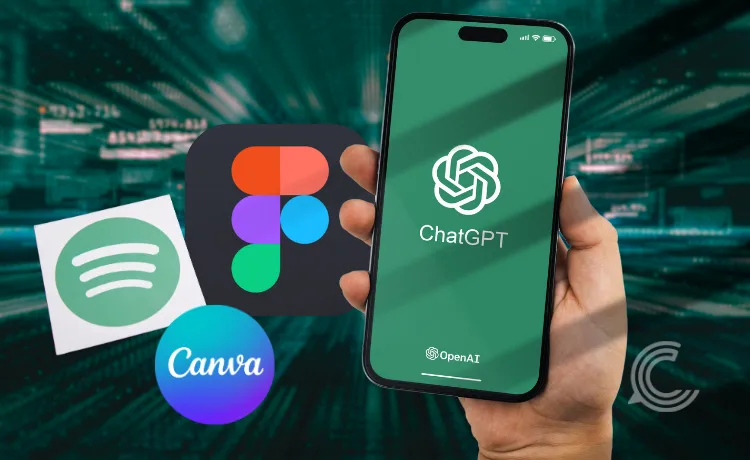OpenAI Transforms ChatGPT Into a Digital OS With Built-In Apps

- ChatGPT is turning into a conversational operating system with the launch of integrated apps like Zillow, Canva, and Spotify
- The new Apps SDK offers the ability to embed fully interactive interfaces directly on the chat instead of using the old plugin system
- This move shifts app discovery to user intent-based suggestions, creating a new platform for high-traffic distribution.
OpenAI has officially announced ChatGPT Apps which would expand the popular platform beyond just conversations and turn it Into a complete working environment.
Powered by a new feature called Apps Software Development Kit (SDK), the ability allows users to chat with big third-party services such as Zillow, Canva and Spotify within the chat window.
The immediate rollouts lists include the heavy weights such as real estate group Zillow, design software giant Canva, music streaming service Spotify, online education provider Coursera, travel booking sites Expedia and Booking.com, and collaborative design computer software emulator tool Figma.
This integration enables users to perform tasks such as asking ChatGPT, “Spotify, make a playlist for my Friday party,” or by saying “Zillow, find me three-bedroom houses in Pittsburgh expert” that is surfaced and executed with the app without the user ever leaving the conversation.
ChatGPT Apps arrives inside the conversations
The foundation for this launch goes all the way back to early 2023 when Plugins for ChatGPT was introduced. While plugins offered early opportunities to retrieve external data and actions (such as accessing the web or using Zapier), they were often unwieldy and only had access to a text-based interface. The experience wasn’t quite as seamless or interactive as one might want, assuming that is what a modern day digital assistant should have to offer.
The new Apps SDK is a complete evolved form breaking the old user plugins. It’s built on the Model Context Protocol (MCP), an open standard, but of course critically it offers developers the ability to insert entire, interactive user interfaces; maps, image previews, and action buttons both directly in the chat thread.
This change from basic text-based to rich in-chat user interfaces is what makes it possible for Zillow to show you a map of listings or Canva to show you a design preview. It is a needed technical step to make the conversational operating system a tangible reality.
Platforms Economics and Discovery
While many focus on the user convenience, the most profound implication lies in platform economics and app discovery. The new ChatGPT App model represents an enormous opportunity for developers to reach an audience with over 800 million weekly active users.
The unique mechanism about the ChatGPT App platform is that the basis of discovery is based on user intent and not a search bar. When a user talks about a need (planning a trip) and the underlying AI model intelligently recommends the app (e.g. Expedia) right at the time of need.
This frictionless discovery bypasses the incredible expense and amount of work previously needed for app store optimization, search engine marketing, social media advertising, etc. For launch partners, this will be a new high intent customer acquisition channel with, initially, limited competition.
However, this enormous distribution comes at a cost, and the ‘funnel’ is totally out of the developer’s hands and has become wholly reliant on OpenAI’s proprietary ranking and suggestion algorithms.
The Future of the Interface
The initial wave of integrated apps which will soon be on expansion with DoorDash, Uber, and Peloton to include gives users evidence of its strong tie to apps that take real-world action and give output in visual forms.
Canva’s integration enables users to explain a marketing poster and get a customizable template generated right away; Zillow has live and filterable real estate data on a map. These experiences transcend the basic ability to retrieve information and get more complex with multi-step task completion.
OpenAI is also working to allow a developer to monetise with the upcoming Agentic Commerce Protocol, which is being developed as an open standard for gaining the functionality of an instant checkout and payment within the chat itself



